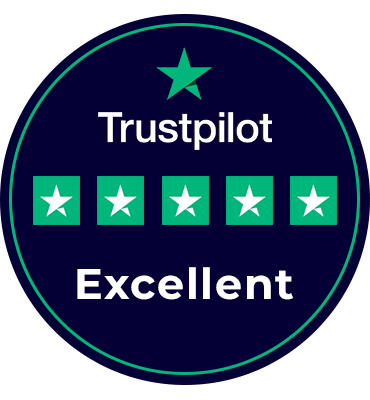A Comprehensive Guide on Travel Application Development
Manish Kumawat
Last Updated on: 30 September 2025
Travel and tourism-related apps are the sixth most downloaded category overall. With the growth in the popularity of Mobile apps, the way travelers and tourists book, arrange, and enjoy their travels has changed. According to the latest studies, 85% of consumers use smartphones to book travel. The whole information about travel application development and travel software development, from essential features and benefits, are discussed in this comprehensive guide.
How Mobile Apps Are Transforming the Travel and Tourism Industry?
In the travel and tourist sector, online sales transactions will account for 74% of total income by 2027. The way travelers plan, book, and experience their journeys has changed by Mobile apps. With the convenience of mobile devices, travelers can access information, book flights, hotels, and activities, and even navigate unfamiliar destinations with ease. The features such as real-time updates, personalized recommendations, and interactive features are available in travel and booking apps.
Booking Convenience: Travelers can book flights, accommodations, and activities instantly from their smartphones, eliminating the need for physical travel agencies.
Real-time Information:Apps provide real-time updates on weather, traffic, flight delays, and local events, ensuring a smoother travel experience.
Personalization: Travel apps use data analytics and AI to offer personalized recommendations, making trips more tailored to individual preferences.
Reviews and Recommendations: Travelers can access user-generated reviews and recommendations for hotels, restaurants, and attractions.
Travel App Market & Industry Forecasts
The travel app market is experiencing significant growth, and this trend is expected to continue. Travelers are highly relying on apps to simplify their journeys by mobile bookings. With forecasts predicting continued expansion, businesses in the travel sector must adapt and invest in mobile app development to stay competitive. Key trends and forecasts include:
Mobile Bookings:A significant shift towards mobile bookings, with more than 60% of travelers booking through apps.
Market Size: The global travel app market is expected to reach $435 billion by 2027, driven by increasing smartphone penetration.
Augmented Reality (AR):AR-enhanced apps are on the rise, offering immersive experiences for travelers.
Benefits of Having a Travel App for Your Travel & Tourism Business
Travel businesses can benefit immensely from having their dedicated travel apps. Enhance customer engagement, boost bookings, and improve customer service are available in these apps. A seamless and convenient facility to plan and manage trips is provided for travelers. Having a travel app can give businesses a distinct edge In this highly competitive industry. For businesses in the travel and tourism sector, having a dedicated travel app offers several advantages:
Enhanced Customer Engagement: Apps allow direct communication with customers, providing them with updates and personalized offers.
Increased Bookings:A user-friendly app can boost bookings, as travelers prefer easy-to-use platforms.
Brand Loyalty: A well-designed travel app can foster brand loyalty, encouraging repeat business and referrals.
Classification of Traveling Apps as Per Their Purpose
Travel apps come in various forms, catering to different aspects of a traveler's journey. Both developers and travelers need an understanding of the different types of travel apps and their purposes.
Travel apps can be categorized based on their primary purpose:
Booking Apps:These focus on reservations for flights, accommodations, car rentals, and activities.
Navigation Apps: Designed to help travelers navigate and explore destinations effectively.
Information Apps: Provide valuable information about destinations, including culture, history, and local attractions.
Leading Tickets Booking Apps
Some travel and tourism apps have emerged as leaders in the ticket booking segment like Expedia, Booking.com, and Skyscanner. Plenty of choices for flights, accommodations, and more are available for users in these apps.
Prominent travel apps for booking tickets include:
Expedia: Offers a comprehensive platform for booking flights, hotels, car rentals, and activities.
Booking.com: Known for its extensive database of accommodations worldwide.
SkyscannerA popular flight search engine that compares prices from various airlines.
Super Apps vs. Dedicated Apps vs. Segment Apps
Understanding the difference between super apps, dedicated apps, and segment apps is crucial: Travel apps fall into various categories, including super apps that encompass multiple services, dedicated apps focused solely on travel, and segment apps catering to specific niches within the travel industry. The advantages and services of each category are different.
Super Apps:Offer a wide range of services beyond travel, like payments and food delivery.
Dedicated Apps:Focus solely on travel-related services.
Segment Apps: Concentrate on a specific travel niche, such as hotel bookings or flight reservations.
Must-Have Features of A Travel App
To create a successful travel app, certain features and functionality are indispensable. User profiles, booking engines, real-time updates, and user reviews are just a few examples. A seamless and enjoyable experience for travelers is ensured by these advanced features.
Essential features for a profitable travel app include:
User Profiles: Personalized profiles for travelers to manage bookings and preferences.
Booking Engine: Secure and efficient booking system for flights, hotels, and activities.
Real-time Updates:Providing live information on travel disruptions and local events.
Reviews and Ratings: User-generated content to aid travelers in decision-making.
How Travel Apps Work?
Complex processes behind the scenes are the secret behind the functionality of travel apps. Payment gateways guarantee safe transactions, booking APIs link customers to services, and mapping APIs facilitate navigation. Anyone interested in the development of travel apps must know how these components work together.
Travel apps function through various APIs, including:
Booking APIs: Connect with airlines, hotels, and service providers for real-time booking.
Mapping APIs: Utilize maps and location services to provide navigation and travel information.
Payment Gateways:Facilitate secure payment transactions within the app.
Main Steps to Create a Travel App
70% of consumers use a mobile device to research travel-related topics. From conceptualization and market research to design, custom travel app development involves multiple stages like development, testing, launch, and ongoing maintenance. For businesses looking to create their travel apps, the Seamless development process is possible by following this well-defined roadmap.
Developing a travel app involves several steps:
Idea and Conceptualization: Define the app's purpose, target audience, and unique selling points.
Market Research:Analyze competitors and market trends to identify gaps and opportunities.
Design and Development: Create wireframes, design the user interface, and develop the app's functionality.
Testing:Rigorous testing to identify and fix bugs and issues.
Launch:Release the app on app stores and promote it to the target audience.
Maintenance:Continuously update and improve the app based on user feedback and emerging technologies.
How Travel Apps Make Money? Revenue Models
Travel apps employ various revenue models to monetize their services. Earning commissions from bookings, offering subscription-based premium features, and generating income through in-app advertisements are in these models. Both developers and businesses must be familiar with these revenue models.
Travel apps generate revenue through multiple models, such as:
Booking Commissions: Earning a percentage of each booking made through the app.
Subscription Models: Offering premium features to users for a subscription fee.
Advertisement: Partnering with businesses for in-app advertising.
Technology Required for Building Travel Applications
A specific set of technologies, including programming languages, database management systems, and API integrations is required in building a travel app. For creating a reliable and efficient travel app choosing the right tech stack is critical.
Key technologies for travel app development include:
Programming Languages:Swift (iOS), Kotlin (Android), and JavaScript (cross-platform).
Database Management:SQL or NoSQL databases for data storage.
API Integrations: Utilizing third-party APIs for booking, mapping, and payment processing.
Build Your Business with Our Travel Application Development Services
Grow your business with our app development services. Enhance your business with secure, scalable applications from Fulminous .
Book Travel Application Developers!
Members of a Travel App Development Team
A successful travel app development team consists of various professionals, including project managers, developers, designers, quality assurance testers, and marketing experts.
A travel app development team typically includes:
Project Manager:Oversees the project and ensures it stays on track
Developers:Responsible for coding and app functionality.
Designers:Create the app's user interface and user experience.
Quality Assurance (QA) Testers:Ensure the app functions correctly and is bug-free.
Marketing Team:Promotes the app to the target audience.
How Much It Costs to Create a Travel App?
The travel app development cost can vary widely depending on factors like complexity, features, and the development team's location. Estimating the budget accurately is essential for businesses planning to invest in travel app development. A basic app may cost around $20,000, while more advanced apps can exceed $100,000. We at Fulminous, we offer the best travel app development service at an affordable cost.
Tips to Consider While Developing a Traveling Mobile App
Developing a successful travel agency app requires careful consideration of factors like user-centric design, mobile optimization, offline functionality, security, and user feedback mechanisms.When developing a travel app, keep these tips in mind:
User-Centric Design:Prioritize user experience and convenience.
Mobile Optimization: Ensure the app performs well on both iOS and Android platforms.
Offline Functionality:Include features that work without an internet connection.
Security:Implement robust security measures to protect user data.
Feedback Mechanism:Allow users to provide feedback for continuous improvement.
Why Choose Fulminous?
Fulminous is one of the best travel app development companies in the USA, FRANCE, UK, NETHERLANDS, NEW ZEALAND, GERMANY, and all European Countries. Choosing the right partner for travel mobile app development is crucial. Make a significant difference in the success of your travel app by considering fulminous’s quality like:
Expertise:Our team specializes in travel app development.
Proven track record: We have a track record of 140+ projects over 6+ years.
Strong portfolio:The reason for long-term relationships with clients is evident in our portfolio.
Affordability: International and domestic travel app development costs are comparatively very affordable at Fulminous.
Strong team: Our team of professionals is strong with 50+ certified designers and developers.
Experience:We have a proven track record of delivering top-notch travel apps.
Punctuality: Fulminous is a perfect example of a custom software development company that follows strict punctuality.
Customer service:We follow a client-centric approach and open communication to give the best customer service.
Innovation:We stay updated with the latest technologies and trends in the travel industry.
Collaborate with Us for a Trending Tourism and Travel App
Mobile apps have brought about a transformative change in the travel and tourism industry. Travelers now can enjoy their journey with the help of technology. Collaborate with Fulminous for guaranteed growth for your travel and tourism business with a trending travel app. On-demand app development service of fulminous is ready to take to the peak of success. By hiring our software developer, you can secure the premium quality of mobile apps at an economical cost to develop. The travel experience of your users can be taken to the next level with travel guide apps from us. For highly talented designers and developers, contact our app development consultancy experts through the customer service number + 1 803 310 5187.
HIRE A TOP SOFTWARE DEVELOPMENT COMPANY

 Verified
Expert in Software & Web App Engineering
Verified
Expert in Software & Web App Engineering
Manish Kumawat is the co-founder at Fulminous Software. He is an expert at writing about technical stuff in the IT world. Imagine making the most complicated tech things easy to understand - that's what he do. But that's not all. He has developed and honed the company’s vision, corporate structure & initiatives, and its goals, and brought the company into the current era of success.
Partner with Top-Notch Web Application Development Company!
Discuss your Custom Application Requirements on info@fulminoussoftware.com or call us on +1-903 488 7170.
15 Days Risk-Free Trial

